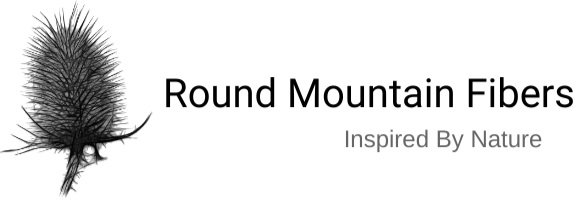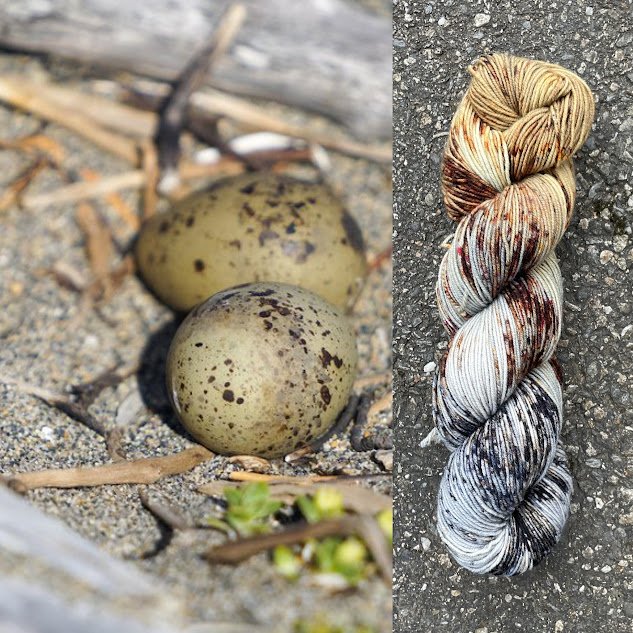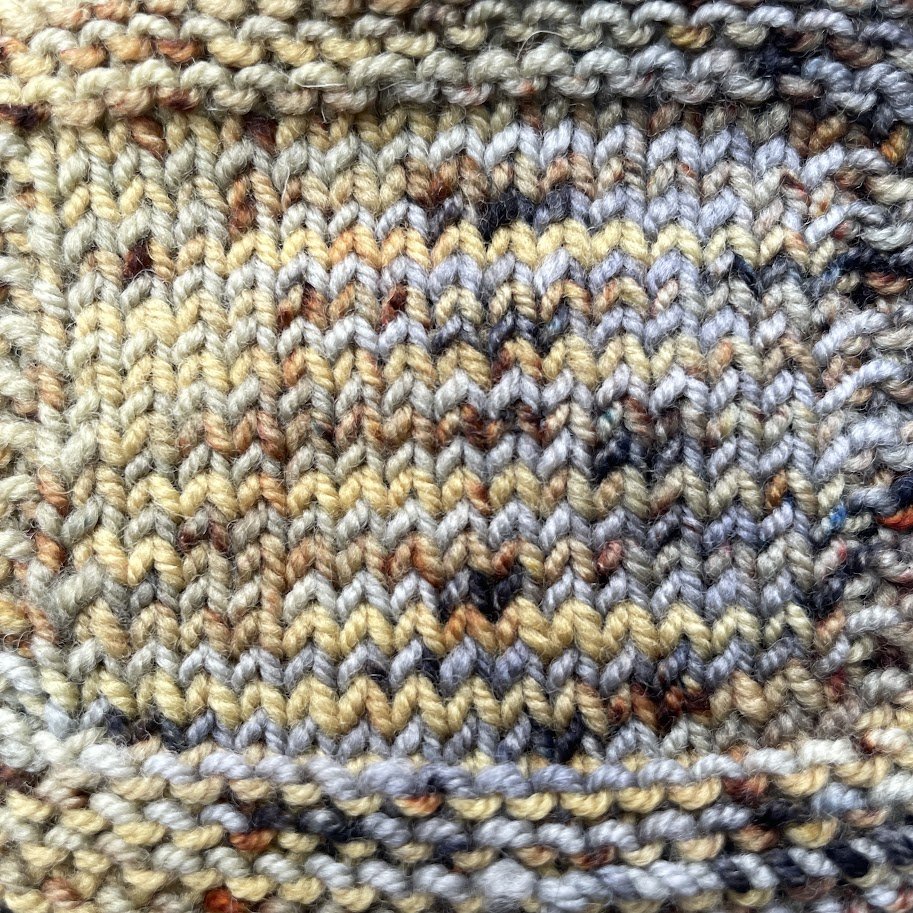Arctic Tern Eggs
The nests of Arctic Terns are typically found on a rocky surface such as a pebbly beach. Often laid in pairs, these eggs resemble pebbles in order to camouflage themselves. Once the babies hatch, they remain with their parents for 3 months and often return to their hatching grounds to breed as adults.
Curious to see how it knits up? Click HERE to see projects in Ravelry.
Here are a few of our favorite coordinating semisolids: Pickerel Fins, Yak Belly, Pale Gray, Cherry Bark, Morel Brown
The nests of Arctic Terns are typically found on a rocky surface such as a pebbly beach. Often laid in pairs, these eggs resemble pebbles in order to camouflage themselves. Once the babies hatch, they remain with their parents for 3 months and often return to their hatching grounds to breed as adults.
Curious to see how it knits up? Click HERE to see projects in Ravelry.
Here are a few of our favorite coordinating semisolids: Pickerel Fins, Yak Belly, Pale Gray, Cherry Bark, Morel Brown
The nests of Arctic Terns are typically found on a rocky surface such as a pebbly beach. Often laid in pairs, these eggs resemble pebbles in order to camouflage themselves. Once the babies hatch, they remain with their parents for 3 months and often return to their hatching grounds to breed as adults.
Curious to see how it knits up? Click HERE to see projects in Ravelry.
Here are a few of our favorite coordinating semisolids: Pickerel Fins, Yak Belly, Pale Gray, Cherry Bark, Morel Brown



